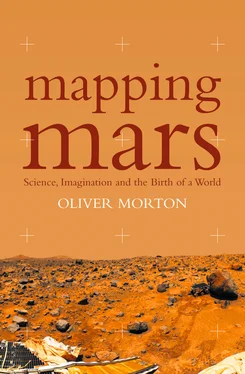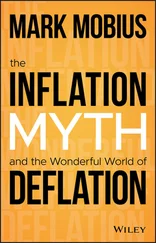OLIVER MORTON
SCIENCE, IMAGINATION AND
THE BIRTH OF A WORLD
William Collins
An imprint of HarperCollins Publishers 77–85 Fulham Palace Road, London W6 8JB www.harpercollins.co.uk
First published in Great Britain by William Collins in 2002
Copyright © Abq72 Ltd 2002
The right of Oliver Morton to be identified as the author of this work has been asserted by him in accordance with the Copyright, Designs and Patents Act 1988
A catalogue record for this book is available from the British Library
All rights reserved under International and Pan-American Copyright Conventions. By payment of the required fees, you have been granted the nonexclusive, nontransferable right to access and read the text of this e-book on-screen. No part of this text may be reproduced, transmitted, downloaded, decompiled, reverse engineered, or stored in or introduced into any information storage and retrieval system, in any form or by any means, whether electronic or mechanical, now known or hereinafter invented, without the express written permission of HarperCollins e-books.
HarperCollinsPublishers has made every reasonable effort to ensure that any picture content and written content in this ebook has been included or removed in accordance with the contractual and technological constraints in operation at the time of publication.
Source ISBN: 9781841156699
Ebook Edition © JUNE 2012 ISBN: 9780007397051
Version: 2014-09-15
For Lieutenant Arthur Noel Morton, RNVR
Navigating officer, HMS Hargood , 1944–5 Lover of maps, lover of writing and loving father – ‘Round about here, Sir.’
Cover
Title Page
Copyright
Dedication
Preface
Introduction
Part One – Maps
Greenwich
A Point of Warlike Light
Mert Davies’s Net
The Polar Lander
Mariner 9
The Art of Drawing
The Laser Altimeter
Part Two – Histories
Meteor Crater
‘A Little Daft on the Subject of the Moon’
An Antique Land
Maps and Multiple Hypotheses
The Artist’s Eye
Layers
Part Three – Water
Malham
Mike Carr’s Mars
Reflections
Shorelines
The Ocean Below
‘Common Sense and Uncommon Subtlety’
Part Four – Places
Buffalo
Putting Together a Place
The Underground
Bob Zubrin’s Frontier
Mapping Martians
Part Five – Change
Symbols of the Future
Gaia’s Neighbour
The Undiscover’d Country
Bibliography
Index
Acknowledgements
About the Author
References, Notes and Further Reading
About the Publisher
‘Are you going to move our stuff?’
‘No, that’s the view. We’re in the picture.’
Exchange between William Fox and Mark Klett
in William L. Fox, View Finder
There’s a world on my wall.
Mountains, canyons, plains and valleys, all a faded pinkish ochre, an even tone as plain as a colour can be without being grey. The sun is to the west – shadows fall gently to the right. There are faults and rifts, ash flows and lava fields. There are creases and stretch marks, straight lines and strange curves. There are circles and circles and circles.
No cities. No seas. No forests and no battlegrounds. No prairies. No nations. No histories and no legends. No memories. Just features, features and names. Argyre and Hellas and Isidis. Olympus and Alba and Pavonis. Schiaparelli and Antoniadi, Kasei and Nirgal. Beautiful double-rimmed Lowell. Names from one world projected on to maps of another. Maps of Mars.
The maps on my wall, painstakingly painted about fifteen years ago, show the surface of Mars from pole to pole. They show volcanoes that dwarf their earthly cousins in age and size. They show the round scars of uncountable asteroid impacts, many far more violent than the one which killed off the earth’s dinosaurs. They show a canyon so long and deep it’s as if the planet’s tight skin has swollen and split. They show featureless plains and pock-marked ones, jumbled hummocky hills and strange creases that swarm together for thousands of kilometres, like the grain in a piece of timber. They show features perfectly earthlike and features so strange the earth has no names for them. There’s a world’s worth of scientific puzzles here, some of them already tentatively answered, most still mysterious. There’s a world’s worth of possibilities. But there’s no clear place to start the story.
If people had moved across the pinkish ochre – if they had grown vines on the terraces of Olympus, or herded goats through the Labyrinths of the Night; if legends haunted Tempe and the dales of Arcadia, or if in Ares Vallis ancient grudge had broken into new mutiny – then it would be easy. But there are none of those tales to tell. No gardens of Eden, no sacred springs, nowhere to start the story of a world.
Even stripped of people, with their cities and their borders and their histories, a map of earth would not be this unyielding. Global truths and discrete units of geography would draw the eye. River catchments would tile the plains, mountain ranges would stand like the backbones of continents. There would be seas and islands, well defined. But Mars is not like that. It is continuous, seamless and sealess. Its great mountains stand alone; there are no sweeping ranges, no Rockies or Alps or Andes. The rivers are long gone. There are no continents and there are no oceans, and thus there are no shores. Given patience, provisions and a pressure suit you could walk from any point on the planet to any other. No edges guide the eye or frame the scene. Nowhere says: Start Here.
We might begin the story at one of the places that humanity has touched. In 1971 a Russian spacecraft crashed into Hellas, a vast basin in the southern hemisphere, while another landed more decorously on the other side of the planet, somewhere in or around the crater Ptolemaus. Two years later another Russian probe struck the surface somewhere near the dry valley called Samara. None sent back anything by way of a message. In 1976 America’s more sophisticated Viking landers lowered themselves gently to sites in the northern plains of Chryse and utopia, sending back panoramas of rock and rubble beneath pink-looking skies. But the Vikings eventually fell silent too, leaving Mars alone again. Preludes, not beginnings.
Twenty years later, NASA’s little Pathfinder, cocooned in airbags, bounced to a halt in the rocky fields where Ares Vallis had once spewed out its flood waters. It let loose Sojourner, the first of humanity’s creations to travel on its own across the sands of Mars. That was a new beginning, the beginning of a grand age for earth’s robots. At the time of writing there have been automatic envoys sending data back from Mars ever since. But Pathfinder’s story cannot encompass the whole vast world in front of me. Not yet.
What about beginning on earth? Some places here are very like locations there, perhaps close enough to be tied together by some sort of sympathetic story-magic. Maybe Antarctica, where the driest, coldest landscapes on earth are regularly visited by scientists wanting to get some sense of a smaller, drier, colder world. Or Iceland, where permafrost and lava fight as once they did on Mars. Or the scablands of Washington state, ripped clean by floods like those that scoured Pathfinder’s landing site. Or Hawaii’s volcanoes, near perfect miniatures of the Martian giants. Or Arizona’s Meteor Crater, where earthly geologists first came to grips with what a little bit of asteroid can do to the face of a planet, given enough speed. They are all places where one can learn about Mars, where the trained imagination can almost touch it. But none evokes the whole world.
Читать дальше












